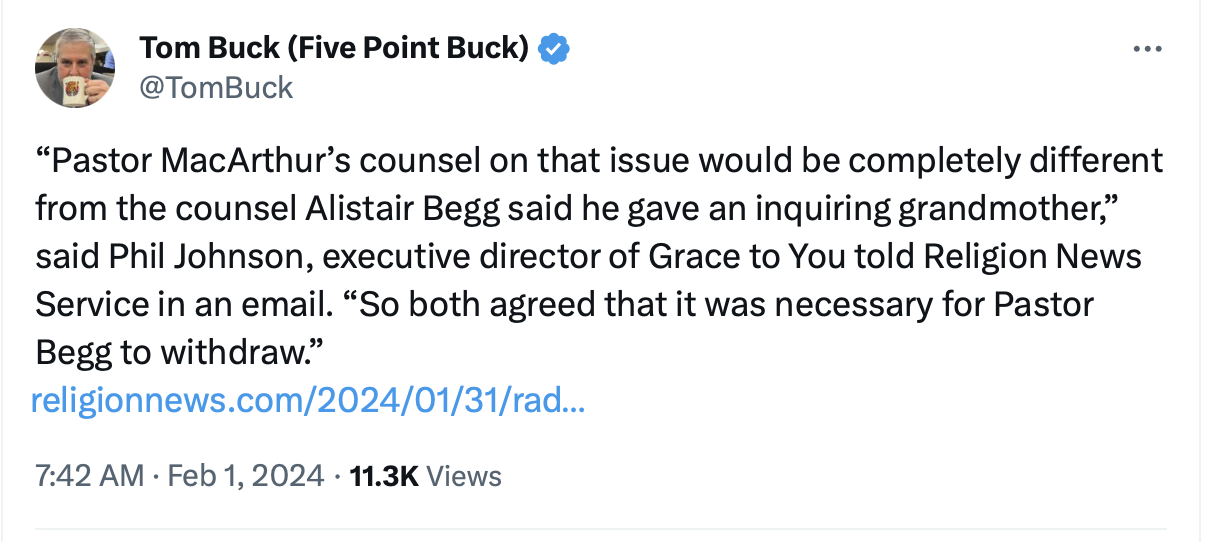Who is Alistair Begg, and why are American fundamentalists so upset with him?
This article originally appeared at Baptist News Global on February 1, 2024.
“I’m not ready to repent over this. I don’t have to,” Alistair Begg boldly declared in a sermon titled “Compassion vs. Condemnation” at the non-denominational Parkside Church in Cleveland last Sunday.
The accusations being leveled against Begg are that he has caved to the LGBTQ movement after encouraging a grandmother he didn’t know to attend her grandson’s wedding to a transgender person.
Nothing sets off evangelical hardliners like weddings they deem abnormal.
Thus, when some conservatives caught wind of his recommendation, they accused him of affirming sin, and practicing pastoral malpractice to the point of disqualifying himself from ministry. The uproar became so strong that American Family Radio canceled his “Truth For Life” radio program that had been broadcasting for 12 years.
Debate over this one pastor’s comments have set evangelical Twitter on fire.
All of this begs the question: Has the conservative complementarian inerrantist pastor had a recent change of heart regarding sexual relationships?

Who is Alistair Begg?
Although well-known among his tribe, Begg is not likely a household name among most Americans who do not follow the inner workings of evangelicalism and the big business of broadcasting sermons over the radio, TV and internet.
“I’ve always said I am a little bit out of sync with the American evangelical world for this reason. That I am the product of British evangelicalism, represented by John Stott, Martin Lloyd Jones, Eric Alexander, Sinclair Ferguson, Derek Prime,” Begg explained in his sermon. “I have never been a product of American fundamentalism.”
Although Begg has a rather soft-spoken demeanor, his cutting sarcasm began to show its face when contrasting British evangelicalism and American fundamentalism. “I come from a world in which it is possible for people to actually grasp the fact that there are nuances in things. Those of you who are lawyers understand this. Everything is not so categorically clear that if you put one foot out of this box, you’ve got to be removed from the box forever.”
His reference to being removed from the box likely has to do with the cancel culture American fundamentalists often promote by separating from “the world,” false teachers and disobedient brothers in response to God’s holiness.
Despite contrasting himself with fundamentalists, however, Begg affirms fundamentalist doctrines such as biblical inerrancy, penal substitutionary atonement, complementarian gender hierarchies and retributive justice through eternal conscious torment.

The man on the middle cross
In perhaps Begg’s most widely shared presentation of the gospel, he humorously reflects on the idea of the thief on the cross walking up to the gates of heaven following his crucifixion when suddenly he’s met by an angel.
“I can’t wait to find that fellow one day to ask him, ‘How did that shake out for you?’” Begg envisions.
He imagines the angel asking the thief, “What are you doing here?”










Leave a Reply
Want to join the discussion?Feel free to contribute!